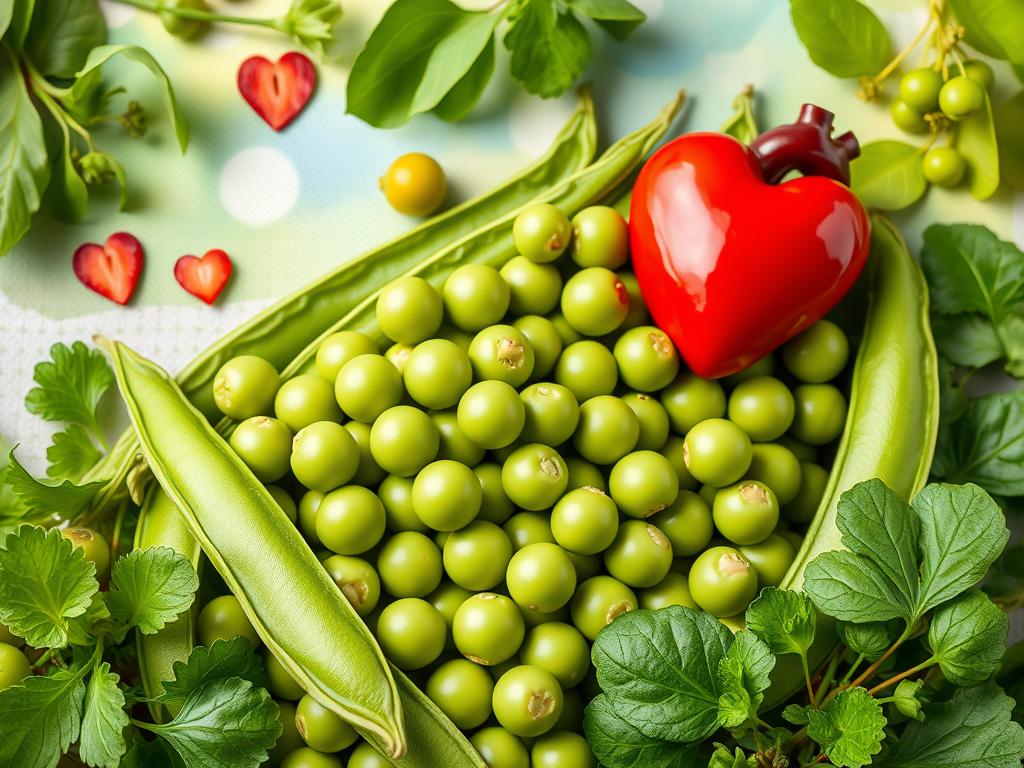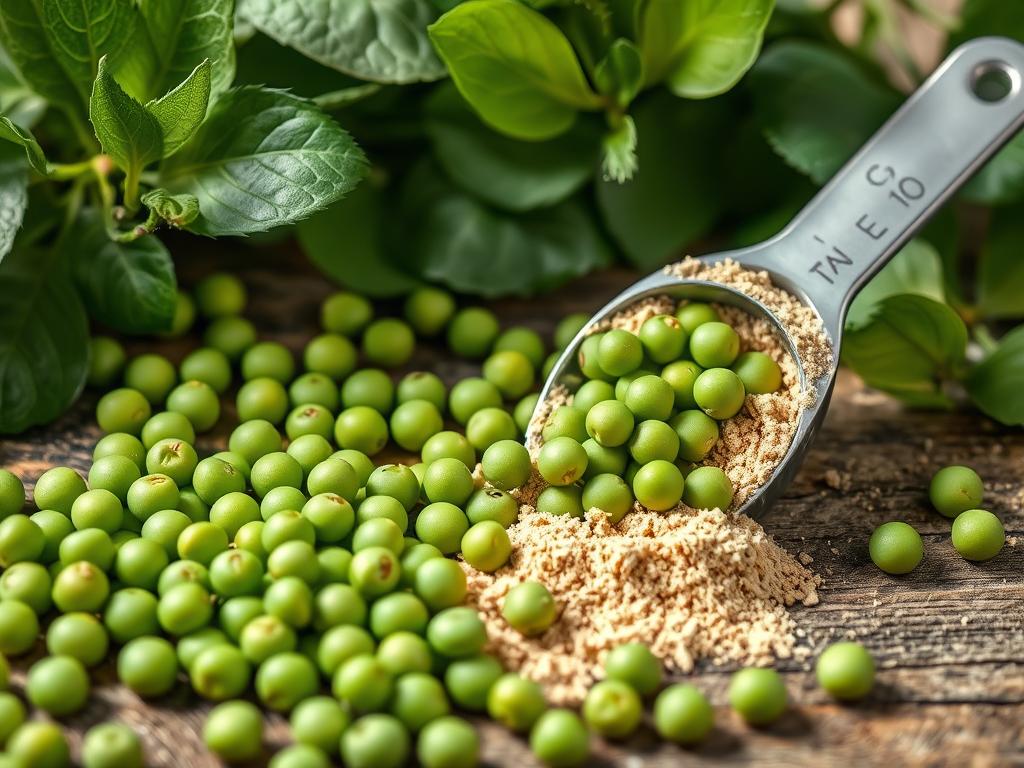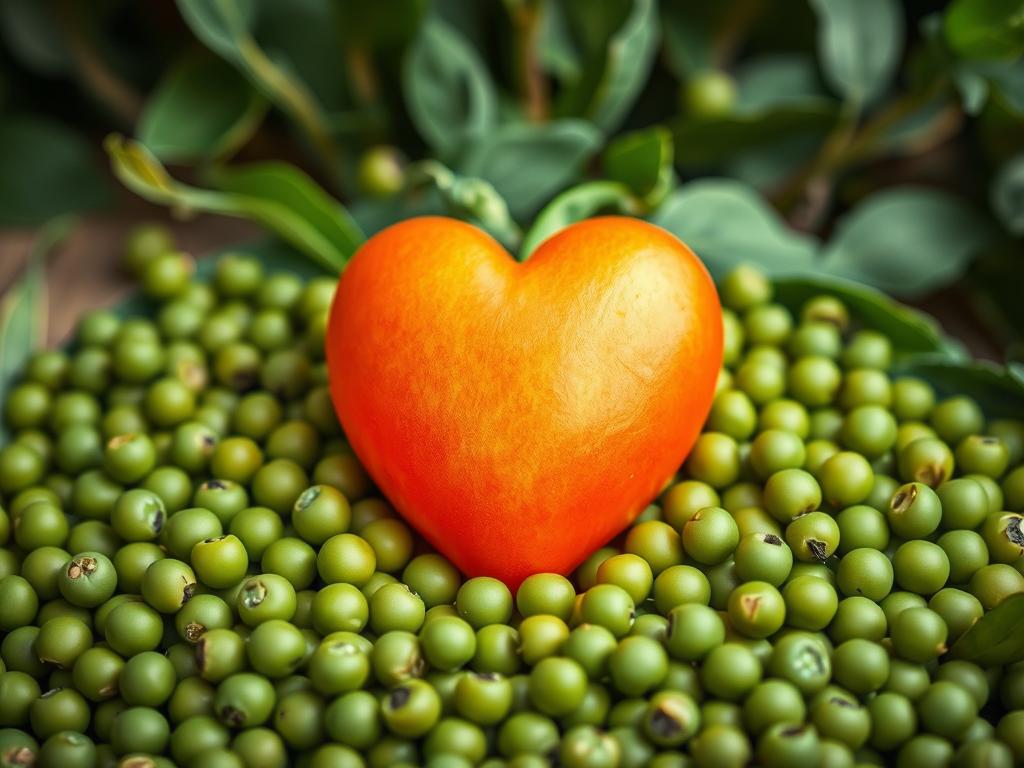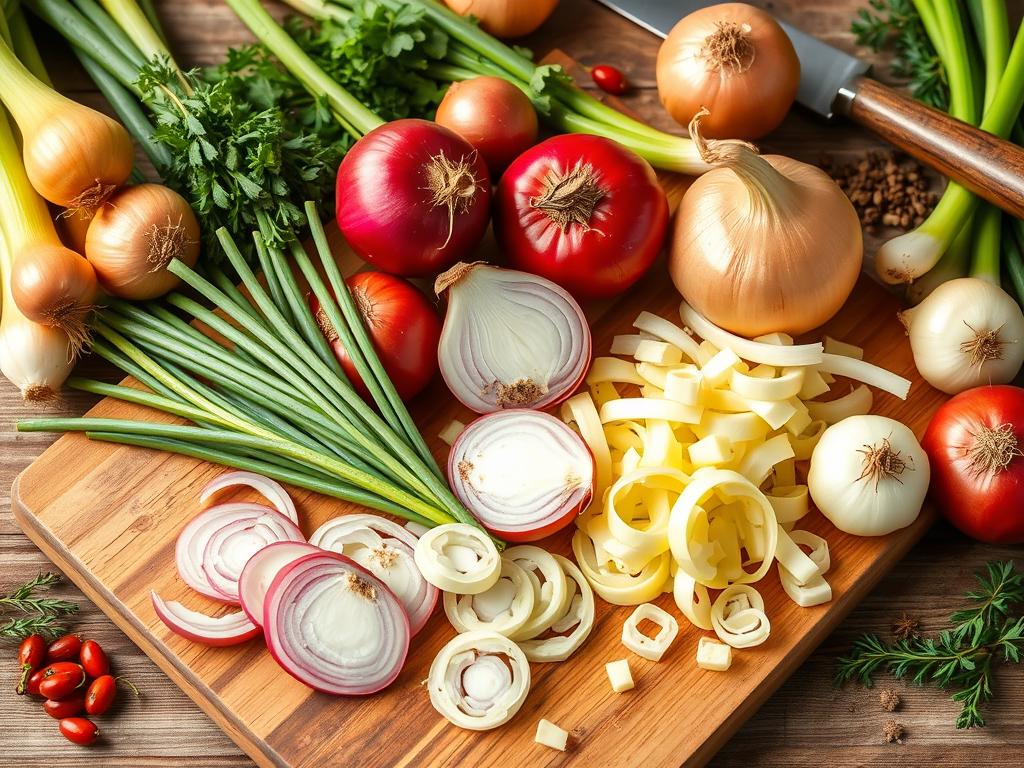Have you ever savored the simple pleasure of a perfectly cooked pea? These tiny, vibrant legumes may often go unnoticed amid an array of colorful vegetables, yet they pack a powerful punch when it comes to nutrition and health benefits. As we weave through our busy lives filled with endless choices, it’s easy to overlook such humble foods. However, embracing nutrient-rich peas can lead to delightful culinary experiences and notable health transformations. These tiny but mighty superfoods are not just side dishes; they are key players in the journey toward a healthier, happier you.
Rich in essential vitamins and minerals, peas offer remarkable advantages that many are unaware of. They hold the potential to enhance blood sugar management, support digestive health, and bolster heart health, inviting you to explore their value. Let’s delve into the world of peas and discover why these often-forgotten legumes deserve a place in your pantry.
Key Takeaways
- Peas are nutrient-rich superfoods that support overall health.
- They are high in fiber, contributing to feelings of fullness and aiding digestion.
- Peas are a great plant-based protein source, ideal for various diets.
- Regularly incorporating peas can improve heart health.
- These tiny legumes can help manage blood sugar levels effectively.
- Peas can be enjoyed in multiple recipes, enhancing meals and snacks.
Introduction to Peas as Superfoods
Peas are not just a simple side dish; they are power-packed superfoods that offer a wide array of health benefits. As a member of the legume family, nutrient-rich peas deliver plant-based proteins and essential nutrients vital for maintaining optimal health. Understanding the nutritional profile of peas reveals why they deserve a prominent spot in your diet.
Nutritional Profile of Peas
Peas boast a compelling nutritional profile. A standard serving of cooked peas contains the following valued components:
| Nutrient | Amount per 80g Serving |
|---|---|
| Calories | 63 kcal |
| Protein | 5.4g |
| Fat | 1.3g |
| Carbohydrates | 8.0g |
| Fiber | 4.5g |
| Vitamin C | 13mg |
| Potassium | 184mg |
| Iron | 1.2mg |
| Phosphorus | 104mg |
Incorporating peas into your meals is a fantastic way to embrace healthy eating with peas. With their high levels of protein and fiber, they aid in muscle repair and provide lasting energy. The health benefits of peas extend to their rich content of vitamins C and E, alongside essential minerals like potassium and zinc.
Health Benefits Overview
The health benefits of peas are numerous. These nutrient-rich peas are known for:
- Promoting digestive health through their high fiber content.
- Supporting a healthy gut microbiome, which plays a critical role in overall well-being.
- Providing antioxidants that offer protective effects against chronic diseases.
- Containing compounds with anti-inflammatory and anti-cancer properties.
- Being a low glycemic food, which helps in stabilizing blood sugar levels.
The Health Benefits of Peas Explained
Peas are not only delicious but also a powerhouse of nutrients that contribute to overall health. Their diverse nutritional profile includes essential vitamins in peas and minerals in peas that play crucial roles in various bodily functions. Understanding their benefits can inspire you to incorporate these healthy legumes into your daily diet.
Rich in Vitamins and Minerals
A 100-gram serving of peas contains impressive amounts of vitamin C—approximately 40 milligrams—contributing to immune health and protecting against common illnesses like colds and flu. They are also a valuable source of vitamin K, with a cup providing about 44% of the recommended daily intake, which supports bone health and helps prevent osteoporosis. Additionally, the potassium and magnesium content aids in blood pressure regulation and cardiovascular health.
High in Protein and Fiber
Peas are celebrated for their high protein content in peas and rich fiber content in peas. Each serving delivers around 5.4 grams of protein, making them an excellent option among plant-based protein sources. With 3 grams of fiber per two-thirds cup, peas effectively contribute to satiety and digestive health, helping with weight management and blood sugar control, which is vital for diabetes prevention.
Antioxidant Properties
The antioxidant properties of peas are another remarkable aspect of their nutritional profile. Packed with compounds such as flavonoids and phenolic acids, they help combat oxidative stress, which is linked to chronic diseases, including cancer. Interestingly, certain polyphenols in peas, like coumestrol, may assist in cancer prevention by protecting against stomach cancer. Regular consumption of these wholesome legumes supports overall well-being and a robust immune system.

Incorporating peas into your meals can lead to numerous health benefits. From their vitamins and minerals to their role as a source of protein and fiber and their notable antioxidant effects, peas stand out as a superfood worth adding to a balanced diet. To discover more about the advantages of peas, consider reviewing additional resources on their health benefits here.
Different Types of Peas and Their Uses
Understanding the different types of peas offers insight into their culinary uses and nutritional benefits. Among the many varieties available, garden peas, snow peas, and sugar snap peas stand out for their versatility and distinct flavors. Each type provides unique advantages in cooking, enhancing various delicious pea dishes.
Garden Peas
Garden peas, often referred to as green peas, are a popular choice in many households. Harvested while immature, these peas offer a sweet and tender flavor. Culinary uses of garden peas are extensive. They shine in soups, salads, and stir-fries. Their vibrant green color and natural sweetness make them a favorite ingredient, complementing various dishes while providing essential nutrients.
Snow Peas
Snow peas are easily recognizable by their flat, edible pods. These peas are distinct for their mild flavor and crispy texture, making them ideal for light cooking or enjoying raw. The uses of snow peas are prevalent in Asian cuisine, often featured in stir-fries, salads, or as a garnish. They maintain their crunchiness when lightly cooked, making them a delightful addition to culinary creations.
Sugar Snap Peas
Sugar snap peas are a delightful hybrid between garden peas and snow peas. Their sweet, crunchy texture makes them perfect for snacking or adding to salads. Cooking with sugar snap peas enhances the flavor of various dishes, as they pair harmoniously with other vegetables. A quick stir-fry or a raw bite brings out their natural sweetness, making them an excellent choice for nurturing healthy eating habits.
| Type of Pea | Flavor Profile | Common Uses | Nutritional Highlights |
|---|---|---|---|
| Garden Peas | Sweet and Tender | Soups, Salads, Stir-fries | High in Vitamins A, C, K, and Dietary Fiber |
| Snow Peas | Mild and Crunchy | Asian Dishes, Salads, Garnishes | Rich in Vitamins A, C, K, and Low in Calories |
| Sugar Snap Peas | Sweet and Crisp | Raw Snacking, Salads, Stir-fries | Excellent Source of Vitamin C, Fiber, and Protein |
How Peas Support Digestive Health
Peas are not only delicious but also play a significant role in promoting digestive health. Their nutritional profile includes a notable amount of dietary fiber, which is essential for maintaining a healthy digestive system. With around 4.5g of fiber content in peas per serving, these legumes can enhance digestive health benefits of peas significantly.
Fiber Content and Gut Health
The fiber content in peas contributes to overall gut health by facilitating smoother digestion. Fiber aids in the body’s ability to move waste through the digestive tract, which can lead to improved digestive regularity. The consumption of fiber-rich foods like peas helps to cultivate a healthy gut microbiome by serving as a prebiotic, promoting the growth of beneficial bacteria.
Impact on Regularity
High fiber intake has a direct correlation with digestive regularity. Through its bulk-forming properties, the fiber content in peas assists in alleviating issues of constipation. By adding quantity to stool, peas can enhance bowel movements, ensuring that digestion proceeds without discomfort. Many people have found that integrating peas for constipation relief not only helps maintain digestive health but also offers a sense of fullness, making them a great addition to a balanced diet.

Including Peas in Your Daily Diet
Incorporating peas into your meals enriches your diet with essential nutrients while offering various flavors and textures. Whether you’re preparing simple or elaborate dishes, peas are a versatile ingredient perfect for numerous pea recipes. For those looking to enhance their culinary skills, the following sections will provide inspiration and practical guidance on how to cook peas and create healthy meals with peas.
Delicious Recipes Featuring Peas
Peas are extremely adaptable for many recipes. From warming pea soups to vibrant salads, there is no shortage of delicious options. Consider trying:
- Classic pea soup enriched with herbs for a delightful meal.
- Stir-fried snow peas with garlic and ginger.
- Whole grain pasta tossed with sugar snap peas and cherry tomatoes.
Each of these pea recipes highlights the unique taste and health benefits of peas, making them an excellent addition to your cooking repertoire.
Tips for Cooking Peas
When preparing peas, follow these essential cooking tips to maximize flavor and nutrition:
- Steam peas for a few minutes rather than boiling; this helps retain their vibrant color and vitamins.
- Add peas during the final few minutes of cooking other dishes to keep them fresh and tender.
- For frozen peas, simple reheating usually suffices to restore their original flavor and texture.
These cooking tips for peas ensure a delightful culinary experience while keeping the nutrient content intact.
Creative Ways to Snack on Peas
For those interested in snacking on peas, there are many creative options. You can enjoy peas raw or roasted as flavorful, nutritious snacks. Roasted peas seasoned with your favorite herbs or spices provide a crunchy, healthy alternative to traditional snacks. Consider these ideas for healthy pea snacks:
- Raw sugar snap peas dipped in hummus or tzatziki.
- Roasted peas mixed with nuts for a protein-packed treat.
- Pea-based spreads or dips served with whole-grain crackers.
Integrating peas into your diet will help you enjoy the health benefits while awakening your palate. For an interesting twist on healthy snacking, check out this great recipe for sweet and spicy peanuts that pairs well with peas.
Peas and Heart Health
Preserving heart health is crucial, especially as nearly 6 million people are living with heart failure. A heart-healthy diet can significantly impact overall cardiovascular wellness. Peas, recognized as cholesterol-lowering foods, provide various nutrients for heart health and play a key role in this regard.
Heart-Protective Nutrients
Peas are packed with essential minerals like magnesium, potassium, and calcium. These nutrients help regulate blood pressure and enhance cardiovascular function. Studies show that a diet rich in heart health benefits of peas can lead to better outcomes for individuals at risk of heart disease. Incorporating a variety of vegetables, including peas, aligns with recommendations from the American Heart Association to consume eight or more servings of fruits and vegetables each day.
How Peas Can Help Lower Cholesterol
The soluble fiber found in peas has a unique ability to bind with cholesterol during digestion. This process aids in lowering LDL cholesterol levels, impacting overall heart health positively. Including peas and cholesterol in your diet helps support cholesterol management, enhancing heart health benefits. To learn more about beneficial nutrients, including vitamin E, check out this informative article.

Peas for Weight Management
Finding effective strategies for weight management often leads to discovering low-calorie foods that also offer nutritional benefits. Peas stand out as an excellent option due to their impressive health profile, contributing to a balanced approach to healthy eating. With only 63 calories per 80g serving, they serve as filling yet low-calorie additions to various meals.
Low-Calorie and Filling Option
Peas provide a satisfying combination of protein and fiber, which helps promote feelings of fullness. This makes them a smart choice for those looking to manage their weight effectively. Incorporating peas into daily meals can enhance satiety, making it easier to adhere to a healthy eating plan. From soups to stir-fries, peas can transform any dish into a deliciously filling option that supports peas for weight management.
Incorporating Peas for Balanced Meals
Integrating peas into balanced meals with peas opens up a world of flavorful possibilities. They can be tossed into salads, blended into smoothies, or used as a base for wholesome side dishes. This versatility not only makes meals colorful and appetizing but also increases their nutritional value. For those seeking more ideas, a variety of nutritious breakfast options can be explored in recipes that support healthy living, including delicious smoothie bowls and yogurt parfaits found at Nutritious Breakfast Ideas for Teens.
Conclusion: Embrace Peas for a Healthier You
In summary, incorporating peas into your diet can significantly enhance your overall wellness. These nutrient-dense legumes are not only rich in plant-based protein and fiber but also offer numerous health benefits of peas, including supporting heart health and digestive regularity. Peas are an excellent source of essential nutrients like folate and potassium, making them a powerhouse of goodness in every bite.
Why eat peas? Their versatility allows for creative cooking options that can delight your palate. You can easily add them to soups, salads, or even desserts, ensuring that your meals are both nutritious and delicious. Experimenting with peas in various recipes can lead to unexpected and satisfying culinary discoveries.
As you explore the world of peas, you’ll find they’re ideal for healthy cooking. From traditional dishes to innovative creations, these mighty little legumes should be a staple in your pantry. So go ahead, embrace peas in your meals and enjoy their numerous benefits for a healthier you!











